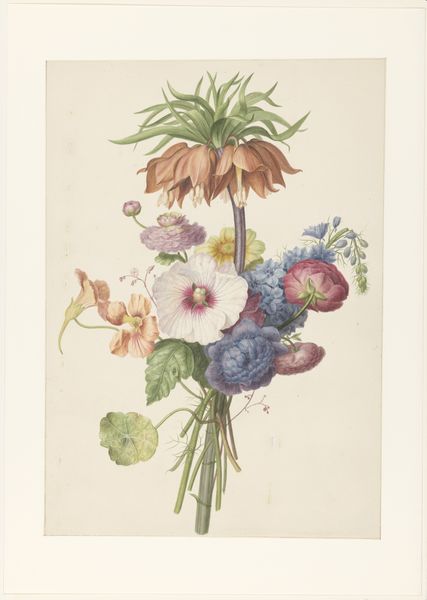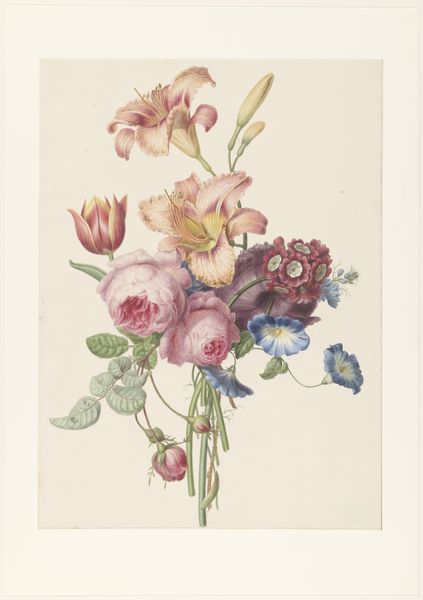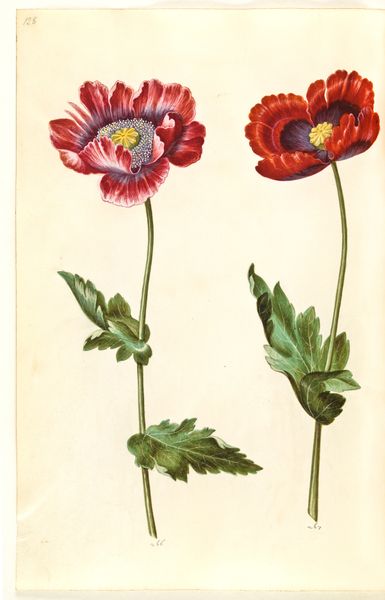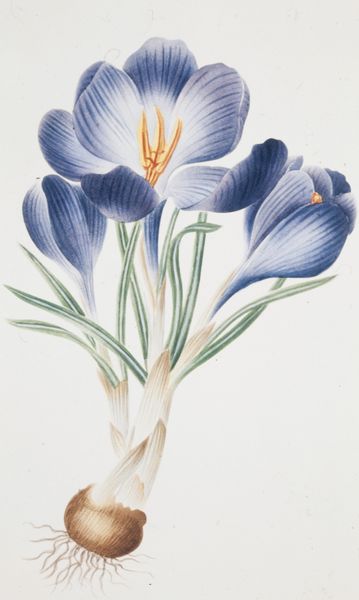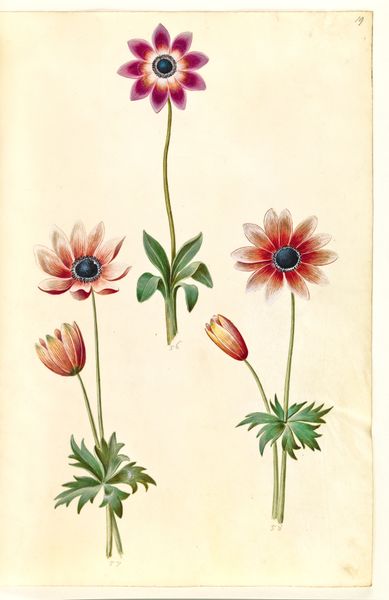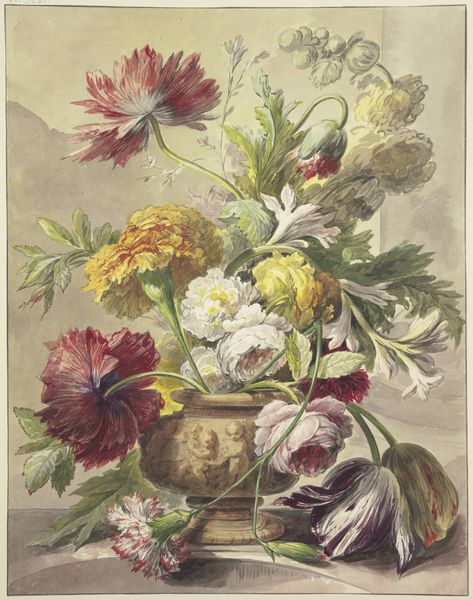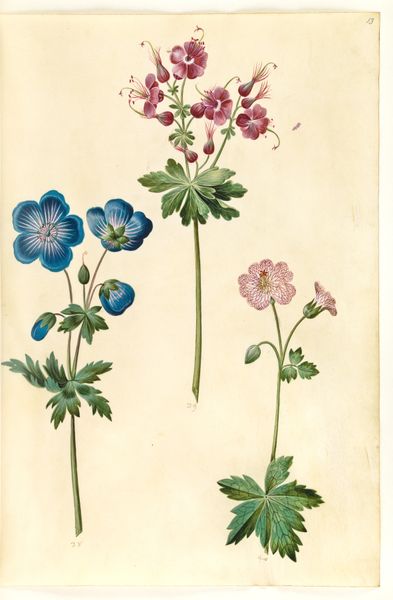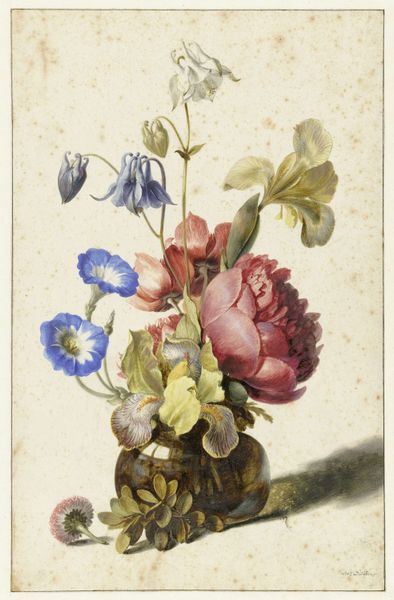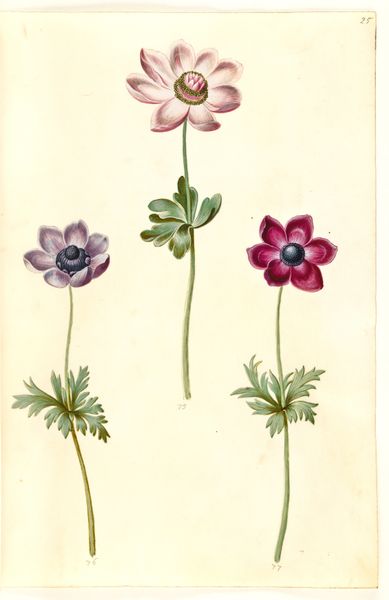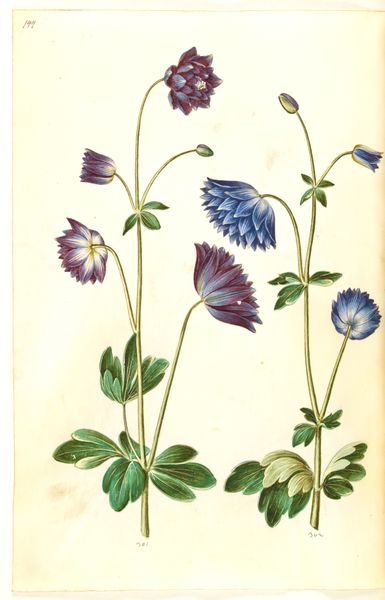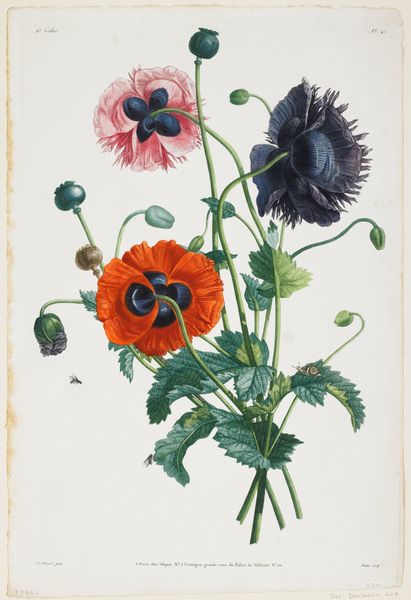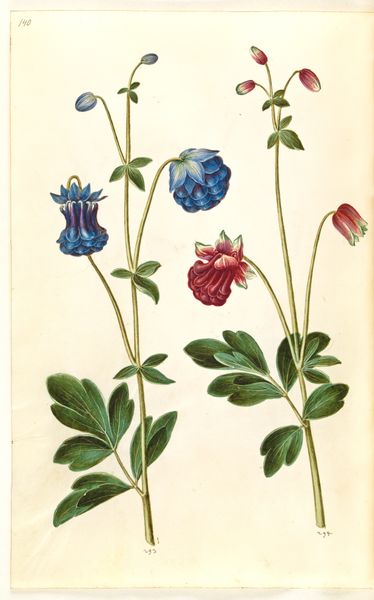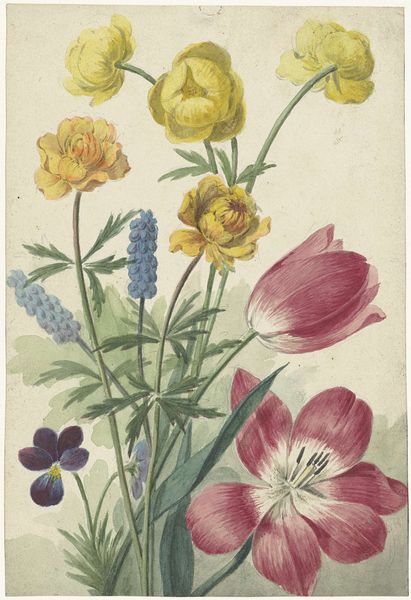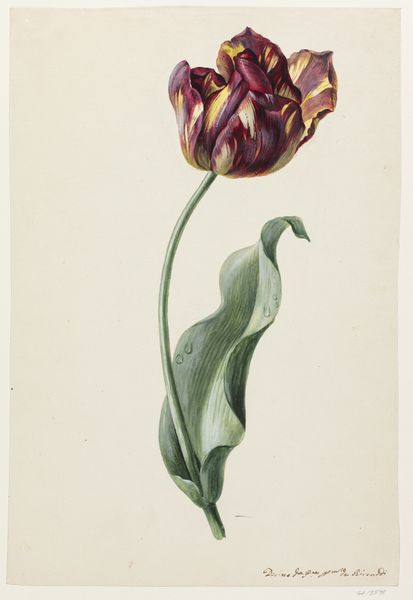
drawing, print, watercolor, pencil
#
drawing
# print
#
botanical illustration
#
watercolor
#
pencil
#
watercolour illustration
#
botanical art
#
watercolor
Dimensions: 10 1/2 x 8 1/2 in. (26.67 x 21.59 cm) (plate)19 5/8 x 23 3/4 x 1 1/8 in. (49.85 x 60.33 x 2.86 cm) (outer frame)
Copyright: Public Domain
Curator: Oh, what a soothing composition! The overlapping blooms create such a lovely sense of depth. Editor: It's quite pretty, isn't it? This is "Anemone simple," a botanical print from 1827 attributed to François Langlois. It employs watercolor and pencil, presenting a seemingly straightforward bouquet. Curator: Straightforward, perhaps, but consider the artist's mastery. Observe the delicate gradients in the petals, how light catches some edges while others recede into shadow. The subtle variations in hue are masterful! Do you agree that these carefully chosen elements enhance the visual appeal? Editor: Absolutely. I'm more interested in the labor required to create such detail. Consider the societal function of this art, it shows both precision and dedication. This piece existed, almost certainly, because the economics were amenable to such craft. Curator: Yes, I concede that this is evidence of societal privilege allowing specialized artistic labour. Even so, the careful observation apparent speaks to a deep engagement with nature's forms; consider the intentional arrangement and asymmetrical composition of leaves versus the bloom orientation. It eschews perfect symmetry, opting for natural asymmetry instead, in what must be argued is the conscious choice of an artist aiming for a specific formal response. Editor: Formal responses, yes. Consider the consumption of such works and their impact on culture, they create hierarchies of value. Curator: Perhaps... or perhaps they were simply intended to capture beauty! Though it does beg the question: Does the scientific exactitude serve aesthetic ends or vice-versa? Editor: Well, for me, that answer hinges on an awareness of materiality, on asking, "How were these pigments derived and prepared?". Only then does true intent become somewhat visible. Curator: Interesting food for thought! Regardless of perspective, one must recognize the meticulous dedication exhibited in crafting "Anemone simple," no matter their personal tastes! Editor: Agreed. I found the intersection of art and the broader forces at work quite interesting to note.
Comments
No comments
Be the first to comment and join the conversation on the ultimate creative platform.
